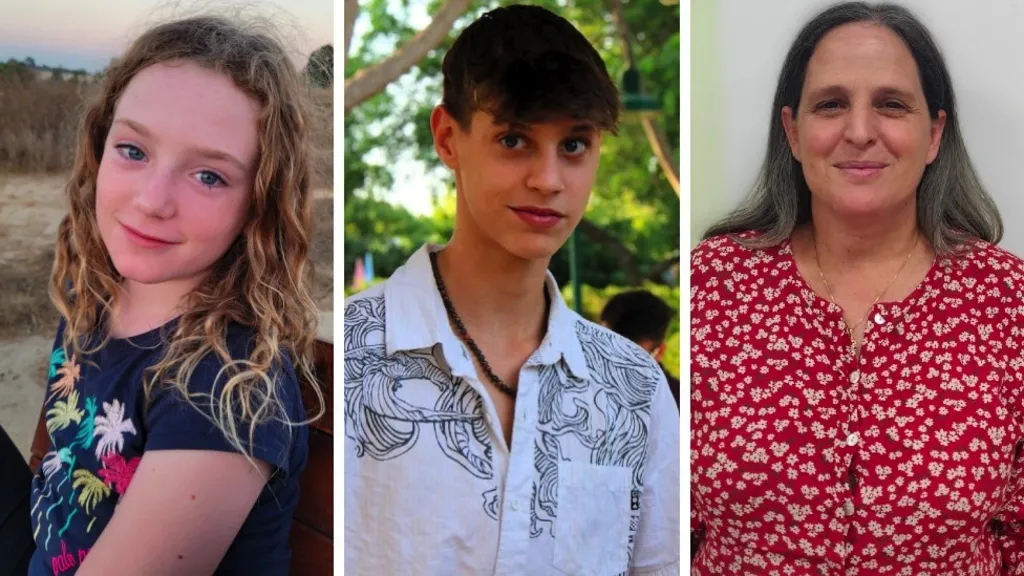Comments
BRING THEM HOME - Sunday morning, I awoke with the flu that everyone I know seems to have. But I also woke up with a strange sensation. At first, I felt confused because it was a feeling I have not had for so very long, I could not remember what it was called. And then I realized, it was…relief! Reading the news that Romi, Emily and Doron were on their way home…finally, I was able to inhale a deep breath.
These are young women I have prayed for daily, by name, for hundreds of days. These are young women I have said psalms for nightly, before I go to bed, for hundreds of nights.
 I knew this day would come. Ever since Israel began to release prisoners as a “goodwill” measure and for hostages, I knew that the time would come when terrorists with “blood on their hands” would be released.
I knew this day would come. Ever since Israel began to release prisoners as a “goodwill” measure and for hostages, I knew that the time would come when terrorists with “blood on their hands” would be released.
My emotions are acrobatic. I can contort and adapt. I am filled with vicarious joy, watching the news, while also holding excruciating ever-present pain from the recent hacking out of part of my heart. As many know, my youngest brother, Erez, was stolen on October 7th. And although he valiantly kept himself alive in torturous conditions, without his dominant arm, he was savagely tortured in a tunnel in Gaza, at the end of August, along with five other beautiful, young, holy souls: Ori, Alex, Almog, Eden and Carmel.
I am in the process of trying to figure out how not just to live, but eventually how to thrive – while missing a piece of my heart. But I will do it. And our whole nation will do it. There is no other way.
What is critical at this time is that we continue getting each and every one of the remaining 94 hostages’ home. Yes, the price is heavy, and the task is Herculean. But the price of not doing it is even higher. So, we do it.
Sure, the Israeli hostage families are delighted over the prospect of being united with their loved ones who have been held captive for more than a year in indescribable conditions belowground in Gaza. I’m delighted, too, that families will be reunited, but my joy is tempered by knowing that these terrorists are being turned loose to commit terror again.
There are good reasons to not release convicted terrorists. While such decisions are often driven by diplomatic, security or humanitarian considerations, they carry significant risks and negative implications. The current deal to release prisoners is harmful to Israel and, in the long run, Western society for several reasons.
The release of prisoners diminishes Israel’s deterrence against terrorism. If it is Israel’s policy of harsh consequences for those who commit acts of terror to deter potential attackers, releasing such prisoners undermines this goal, signaling to its enemies that even those responsible for the deaths of innocent citizens may eventually be freed. The perception of accountability is weakened.
The release of terrorists emboldens groups such as Hamas and Palestine Islamic Jihad to commit terror attacks, believing that the price for their actions may not be permanent incarceration. When prisoners with blood on their hands are released, it is celebrated as a victory by terrorist organizations.
Releasing prisoners, particularly those convicted of murder, can erode public trust in the government and judicial system as it is viewed as undermining the rule of law. Many Israelis feel that such decisions betray the memory of victims and the principles of justice. Victims and the families of victims often bear lifelong scars — both physical and emotional. The outrage and anguish are palpable. We feel that they and their loved ones’ suffering has been tossed aside for political expediency.
When word came last Wednesday that a deal had been reached that would provide a pathway for the release of the 98 hostages still held by terrorists in Gaza, I felt relieved, but I could not yet celebrate.
Of course, I will enthusiastically welcome the return of the hostages and the end of the torture they have endured over the last 15 months. But until every hostage is returned home, we cannot rest.
(Mihran Kalaydjian has over twenty years of public affairs, government relations, legislative affairs, public policy, community relations and strategic communications experience. He is a leading member of the community and a devoted civic engagement activist for education spearheading numerous academic initiatives in local political forums.)
















